How do Marvel Rivals ranks work? It’s seldom enough to hop into a shooter for a casual experience, and eventually, the urge to dive into more competitive waters becomes too much. Like many other games, Marvel Rivals offers rewards specific to its ranked mode, tempting players to test their mettle.
So, if you’ve been hard at work improving your gameplay on your favorite Marvel Rivals characters on the Marvel Rivals tier list, now’s the time to hop into the multiplayer game‘s biggest challenge. Below we’ll take you through all the Marvel Rivals ranks, how the competitive mode works, and the free Marvel Rivals skins you can earn through climbing the ladder.
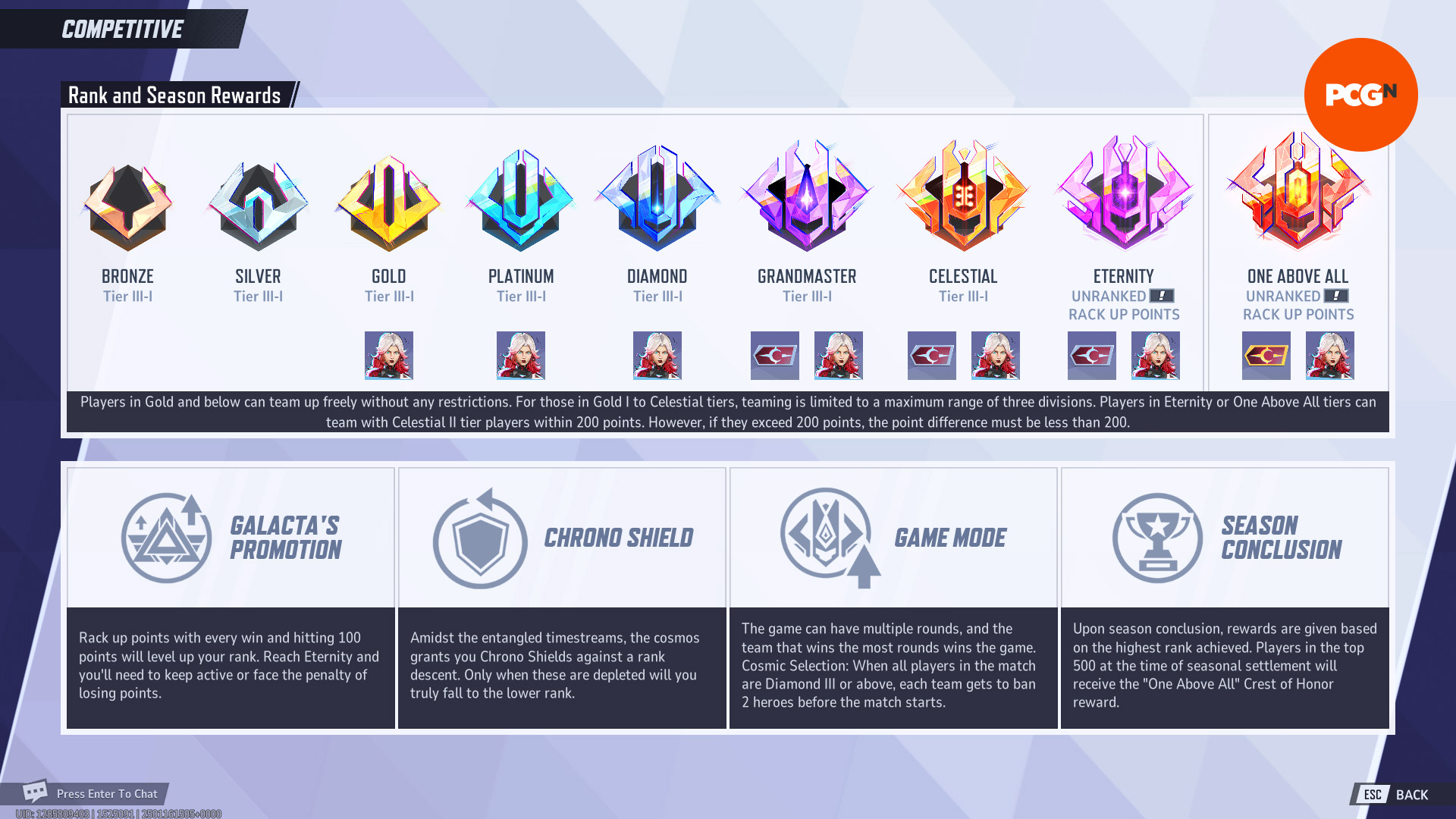
All Marvel Rivals ranks in order
The nine Marvel Rivals ranks are:
- Bronze (Tier III-I)
- Silver (Tier III-I)
- Gold (Tier III-I)
- Platinum (Tier III-I)
- Diamond (Tier III-I)
- Grandmaster (Tier III-I)
- Celestial (Tier III-I)
- Eternity
- One Above All
Each rank up to Eternity has three tiers. Each tier requires 100 ranked points to ascend past (that’s 300 points to make a full rank leap). Once you reach Celestial you’ll simply keep earning points. The Top 500 players at the end of the season are awarded the One Above All rank – a concept many Overwatch 2 players will be familiar with.

Marvel Rivals competitive mode explained
Marvel Rivals’ ranked mode takes the core gameplay elements found in Quickplay but adds a few extra rules. Before you can start playing competitively you’ll have to reach Level 10.
While most of these ranked-exclusive edicts are tied to high elo play, everyone can benefit from the Chrono Shield system. If you go on a losing streak there’s a good chance you’ll get a Chrono Shield. This stops you from being demoted, though once used you’ll have to recharge it. The higher your rank, the more losses you’ll need to accrue to regain your demotion shield. It’s a pretty slick system, and offers some security if you’re flip-flopping between winning and losing in your current tier.
As for the aforementioned high elo rules, if you manage to reach Celestial then be mindful that your rank points will begin to decay after not queuing for a set amount of time. Additionally, as soon as you hit Diamond III your team will be granted the ability to ban two heroes each game. This helps prevent the meta’s most OP picks from running riot every game and ensures you have a hero pool that isn’t as shallow as a kid’s paddling pool.
It should also be noted that there are restrictions on who you can queue up with based on rank disparity. Players in Gold and below can team up with any of their friends. However, from Gold I to Celestial, you need to be in a ranked range of three divisions. Finally, players in Eternity or One Above All can team up with Celestial II players within 200 points.
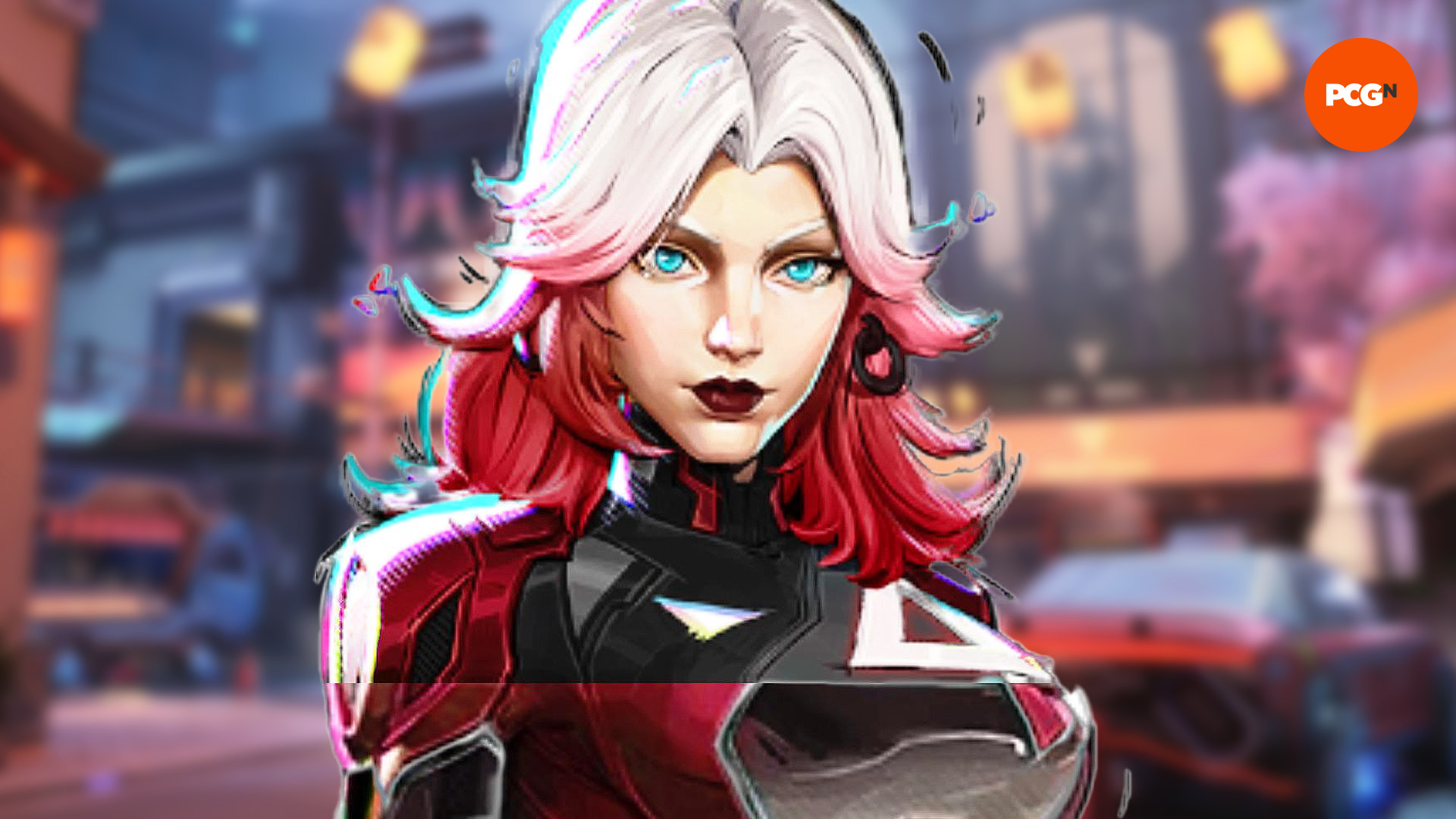
Marvel Rivals ranked rewards
The confirmed ranked rewards for Marvel Rivals Season 1 are:
- Blood Shield Invisible Woman skin – Reach Gold III or higher
- Silver Crest of Honor – Reach Grandmaster III or higher
- Gold Crest of Honor – Reach One Above All
We don’t have full confirmation of what the Invisible Woman skin looks like in-game, but we’ll report back when Blood Shield’s dedicated page is added to the game. Seeing as Invisible Woman was released with Season 1, it’ll be interesting to see if the ranked skin will continue to be awarded to one of the season’s new heroes going forward.
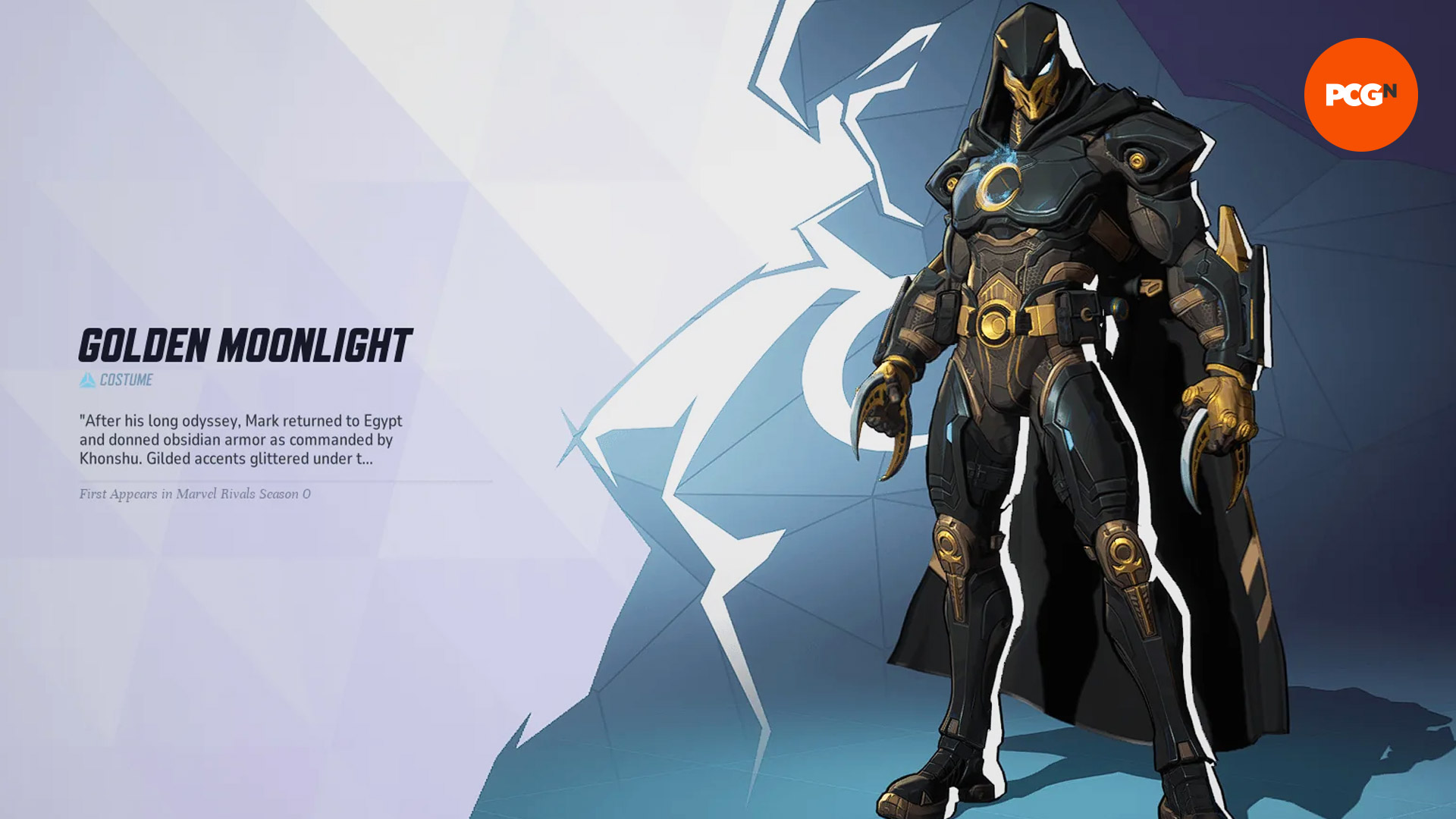
The Marvel Rivals Season 1 rank rewards remain consistent with what we received in Season 0: a free skin and Crests of Honor for those who reach the apex tiers of the ladder. Season 0 granted the Golden Moonlight skin to Moon Knight.
And that’s everything you need to know about the Marvel Rivals ranks, how competitive play works, and what you can earn from locking in and clambering up the ladder this season. Before you go, make sure you’re up to date on the latest Marvel Rivals codes, and double-check to see if Marvel Rivals crossplay is available to you and the homies for ranked.
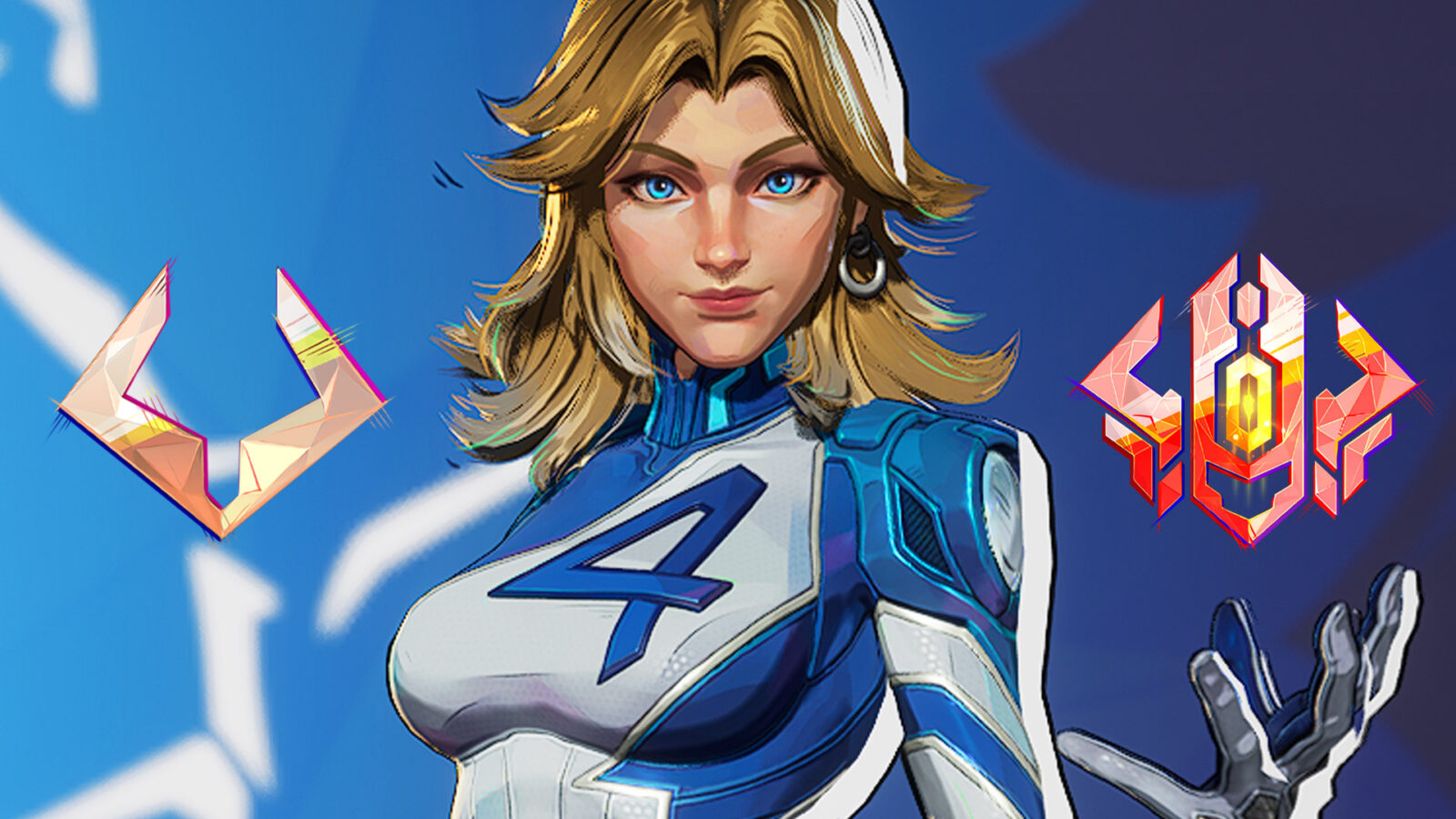



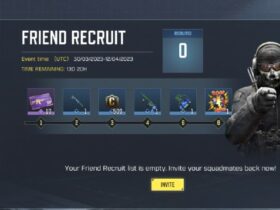







Leave a Reply